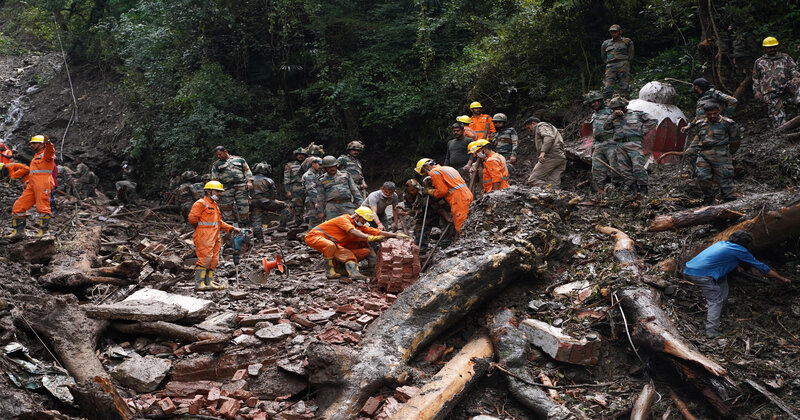
A recent study by the World Weather Attribution group has found that the intense rainfall in southern India last month, which triggered deadly landslides, was exacerbated by climate change. The study reveals that the 15 centimeters of rain that fell within 24 hours on July 29-30 was 10% more intense due to global warming, highlighting the increasing impact of human-caused climate change on extreme weather events. The research warns that ongoing emissions of greenhouse gases will likely lead to more frequent and severe downpours, resulting in similar disasters.
The landslides in Kerala, one of India’s popular tourist destinations, claimed nearly 200 lives, with more than 130 people still missing. This tragic event marks the third-heaviest rainfall recorded in the state since 1901. Climate scientists involved in the study emphasized that such events are becoming more common due to climate change. They pointed out that India’s monsoon rains have become increasingly erratic, as seen in previous years, where heavy rains caused significant fatalities and damage. The study underscores the urgent need to address the root causes of climate change and to improve disaster preparedness.
The researchers also noted that Kerala has been particularly vulnerable to climate change-driven extreme weather. With a significant decrease in forest cover in the Wayanad region, the risks of landslides during heavy rains have increased. The study advocates for better early warning systems, reducing deforestation, and avoiding construction in landslide-prone areas to mitigate future disasters. The findings highlight the critical need for sustainable practices and enhanced protection measures to safeguard communities in the face of worsening climate impacts.

Post Your Comments